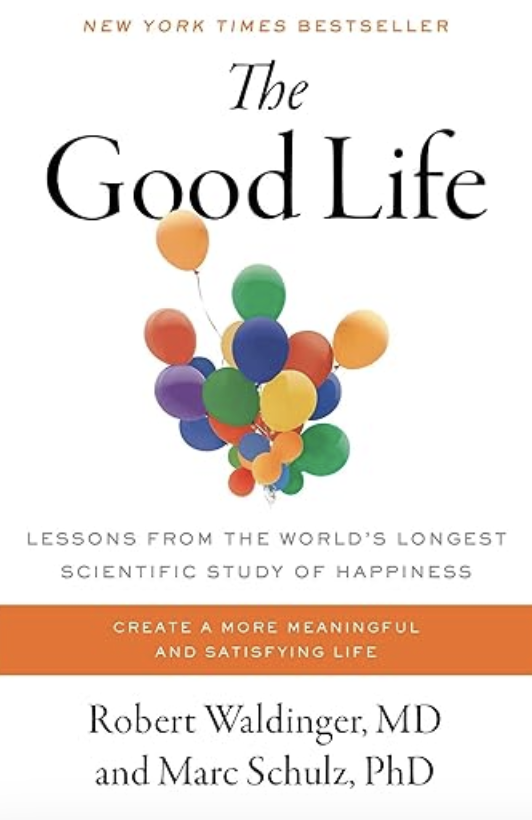by Robert Waldinger and Marc Schulz
Who doesn’t want to live the good life once you retire? But what constitutes the good life?
by Robert Waldinger and Marc Schulz, a New York Times bestseller, offers readers valuable insights into the the levers of happiness and fulfillment uncovered in the longest-running study on adult development – The Grant Study. Leveraging decades of research conducted by the Harvard Study of Adult Development, the authors outline a compelling case that the keys to a fulfilling life lie not in wealth, fame, or possessions, but in the quality of our relationships and our ability to cultivate meaningful connections with others. You may be building the investment portfolio you need to retire, but there’s a social portfolio that will help you thrive.
The core message of the book is that meaningful relationships are the foundation. The Harvard Study of Adult Development, which tracked the lives of two groups of men over a span of 75 years, revealed that those who reported having close, supportive relationships were not only happier and healthier, but also lived longer than those who did not. Social connectivity has a major influence on our physical and mental well-being. Research highlights that loneliness and social isolation are significant risk factors for a range of poor health outcomes, including cardiovascular disease, depression, and even early death.
In The Good Life, Waldinger and Schulz urge people to prioritize cultivating authentic connections over superficial, more trivial pursuits. Investing time and energy in nurturing relationships will bring joy, fulfillment, and a sense of belonging to your life in retirement. But in addition to the criticality of relationships, the book explores how personal growth and self-awareness contribute to building a fulfilling life. Adopting practices like mindfulness, gratitude, and self-reflection, can help create a deeper understanding of yourself and others. It’s not about how many Facebook friends you accumulate, it’s about building real-world genuine relationships. And that takes openness, honesty and vulnerability. While that takes risk and a willingness to step out of your comfort zone at times, The Good Life argues that they are risks well taking to create a rich life.
While the primary research cohort was men, this is a thought-provoking book that sheds light on important elements in life in retirement. You’ll come away with an appreciation of both the upsides and downside risks of several lifestyle choices that lie ahead and a series of proactive action steps to consider.
Listen to my conversation with Marc Schulz
___________________________
Podcast Conversations You May Like
How to Make New Friends in Retirement – Dr. Marisa G. Franco
The Balancing Act in Retirement – Stew Friedman
The Mindful Body – Ellen Langer

